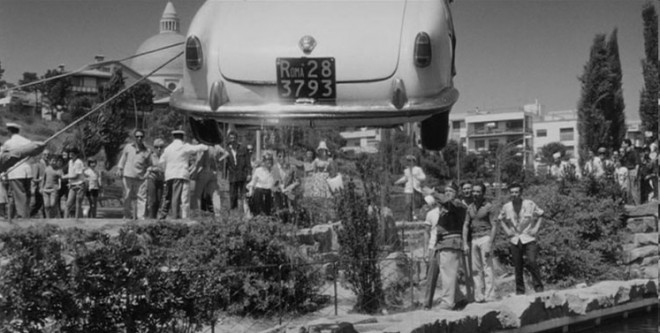Wealthy Jacques de Tremeuse has an alternate identity: the caped avenger Judex—Latin, for Justice. He kidnaps and imprisons Favraux in a secret dungeon, leaving everyone to believe the Parisian banker is dead, after Favraux mistreats his elderly secretary, Vallières, and refuses to give half his ill-gotten fortune to the poor. But Judex has another, more personal motive: Once upon a time, Favraux financially destroyed Jacques’ father, who committed suicide to avoid dishonor. Meanwhile, crooks kidnap, by turns, Favraux’s widowed daughter, Jacqueline, whom Judex rescues and with whom he falls in love, and her little son.
Judex impersonates Vallières vis-à-vis Jacqueline, thus hiding from view his sexual interest. Here, the “good guys”—Jacques and his brother, Roger—kidnap as easily as do the greedy villains, Diana Monti and “Moralés” (another character assuming a false identity). Jacques’ father did not live long enough to learn that a gold mine of his panned out; we keep wondering what sort of person Jacques might have been had he not inherited his father’s wealth. Indeed, when kidnapped and marked for death he manages to substitute someone else, who is duly murdered, thereby becoming a kind of murderer himself. “Good” and “evil” fluctuate in this film, then, but love and forgiveness are ultimately triumphant, including the love of children, which turns a seedy character, private detective Cocantin, into a doting adoptive father, and an unexpected ally of righteousness.
In this dreamlike film, with its fluttering, mesmerizing flight of two white pigeons and Jacqueline, in mourning black, walking down a rural path followed by a pack of benign partly white dogs, one sequence finds Judex imagining Jacqueline, who is thinking about her son, from whom she is separated: a dream within a dream.
Louis Feuillade’s Judex is the dream that is cinema.
B(U)Y THE BOOK
MY BOOK, A Short Chronology of World Cinema, IS CURRENTLY AVAILABLE FROM THE SANDS FILMS CINEMA CLUB IN LONDON. USING EITHER OF THE LINKS BELOW, ACCESS THE ADVERTISEMENT FOR THIS BOOK, FROM WHICH YOU CAN ORDER ONE OR MORE COPIES OF IT. THANKS.

Nice to see Feuillade get some attention. I was excited when a very clean print of “Judex” was released on DVD and it’s had quite a bit of replay value as cinema history and just a fun adventure.
Speaking of “the dream that is cinema”, I believe one of the great dreamers, Jacques Rivette, offered the best homage to Feuillade. Many shots in “Celine and Julie Go Boating” have the feel of a deserted Paris from Feuillade’s serials and the comic robbery of the library where the heroines escape on roller skates is a little joke on Irma Vep from “Les Vampyres”and just a great bit of fun.